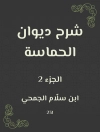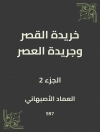In ‘The Hour Glass, ‘ W. B. Yeats explores the intricacies of time and personal destiny through a rich tapestry of symbolism and lyricism. This one-act play reflects Yeats’s fascination with the mystical and the metaphysical, intertwining the themes of memory, love, and the ephemeral nature of human existence. Stylistically, the work fuses poetic dialogue with dramatic form, showcasing Yeats’s ability to convey profound philosophical insights in a succinct theatrical medium. Set in a symbolic environment, we delve into the emotional turbulence of its characters as they confront their past and contemplate their future, revealing the tension between inevitability and free will in the human experience. William Butler Yeats, a Nobel Laureate and luminary of 20th-century literature, drew inspiration from his deep engagement with Irish folklore and mysticism. His lifelong preoccupation with the spiritual and the ideological landscape of Ireland informed his dramatic ventures. ‘The Hour Glass’ exemplifies Yeats’s aim to bridge the material world and the metaphysical, resonating with his broader philosophical inquiries present throughout his oeuvre. Readers seeking a profound exploration of time’s impact on our lives will find ‘The Hour Glass’ an indispensable addition to their literary repertoire. Yeats’s masterful blending of poetry and drama invites reflection on the human condition, making this work a timeless contemplation of existence that resonates across the eras.
Sobre el autor
William Butler Yeats, born on June 13, 1865, in Sandymount, Ireland, was one of the seminal figures of 20th-century literature, a pillar of both the Irish and British literary establishments, and a founding spirit of the Irish literary revival. Renowned for his evocative poetry and symbolist dramas, Yeats’s work intertwines the mysticism of the Celtic Revival with modernist themes. ‘The Hour Glass’, an exemplar of his dramatic oeuvre, is a morality play steeped in both philosophical introspection and esoteric dialogue, showcasing Yeats’s preoccupation with the cyclical nature of life and the tension between fate and human agency. Gaining prominence as a poet and playwright, Yeats was also a prolific essayist and a key figure in the Irish cultural nationalism movement, becoming the driving force behind the Abbey Theatre in Dublin. His literary accomplishments earned him the Nobel Prize in Literature in 1923, making him the first Irishman so honored, an international acknowledgement of his formidable contribution to the world of letters. Yeats’s unique blend of symbolism, romanticism, and modernism, along with his exploration of national identity and folklore, rendered his style unmistakable and his literary voice immortal. His legacy endures today, as his work remains integral to the canons of English literature and Irish studies. Yeats passed away on January 28, 1939, but his work continues to be studied, performed, and cherished around the globe.












